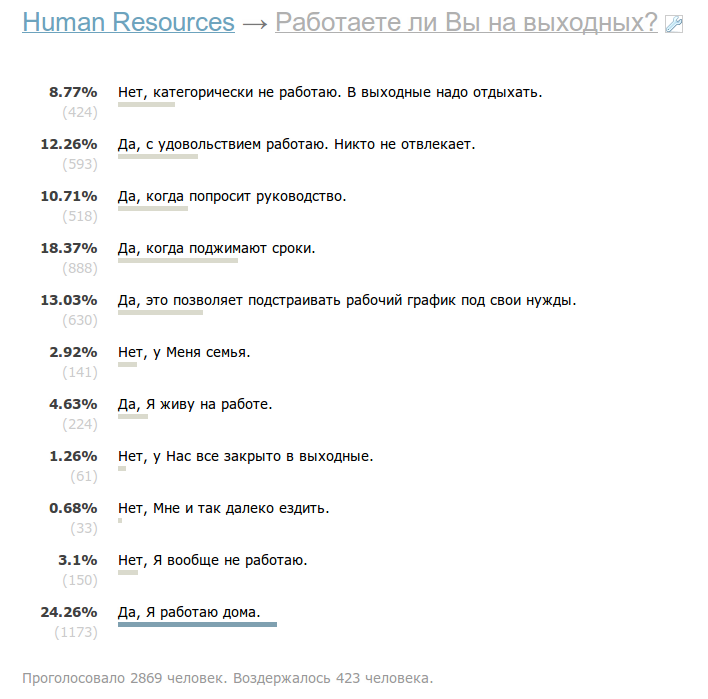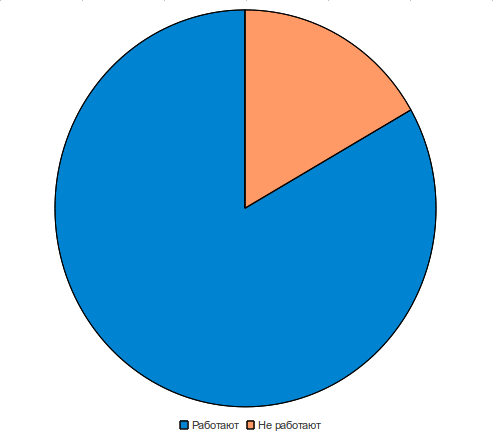Do you work on weekends? Poll results
Introduction
In April, conducted a survey Habrazhiteley "Do you work on weekends?". Got to take stock. Below are the main characteristics derived from the survey, as well as the main differences that have arisen during the discussion of this issue.
Data
Survey results:

Poll with the discussion is on the link "Do you work on weekends?"
')
2869 Habrazhitel participated in the survey, 423 people abstained.
If you divide all the questions into categories “work” and “do not work”, you get the following schedule:

This schedule is only able to reflect the overall ratio, it is not accurate, since multiple voting was allowed in the vote.
Statistics in one line
More than 28% of the votes were given by people who are ready to work at the request of the management in the conditions of tight deadlines.
Only 13.03% of those who voted have a free schedule, which is a bit strange, considering 24.26% of those who work at home.
12.26% are ready to work on weekends for the sake of being able to leave work on a weekday.
Every twelfth IT specialist lives at work, and every nineteenth is unemployed, or considers himself as such.
Only 61 people work at some sensitive enterprise, where everything is closed on weekends and you need to write a lot of paper before you are allowed to work.
Most of the voters live in sufficient proximity to work so they can come at the right time.
Not working on weekends for family reasons, a little less than three percent (2.92%).
12.26% of respondents work on weekends due to the absence of other colleagues at work (“no one distracts”).
Discussion
There were a lot of disagreements. First things first.
There were people who could not determine his day off, in view of his absence or work with shift schedules. This suggests that, even working on weekends, while relaxing on weekdays, the majority of people consider weekends (Saturday, Sunday) to be the best for holidays.
Close people promote rest even during working hours, it will not work with them.
A lot of workers work on weekends and holidays without a higher rate (freelancers are not included in the calculation).
I remembered the Pareto principle, when 20% of efforts bring 80% of the result, but almost all agreed that 40 hours a week is only for survival, everything else is for success (part time, own projects, etc.).
There are a lot of workaholics who have forgotten what a weekend is.
findings
As a result of a survey among the population of Habr, it became clear that work on the weekend has many positive moments, and is not something shameful. If the employer allows you to work at any time of the day, pays overtime, allows you to work remotely, then the motivation of employees increases, they begin to adjust the schedule to fit their needs. Of course, freelancing proudly voted that he works at home as he pleases)
Source: https://habr.com/ru/post/285402/
All Articles